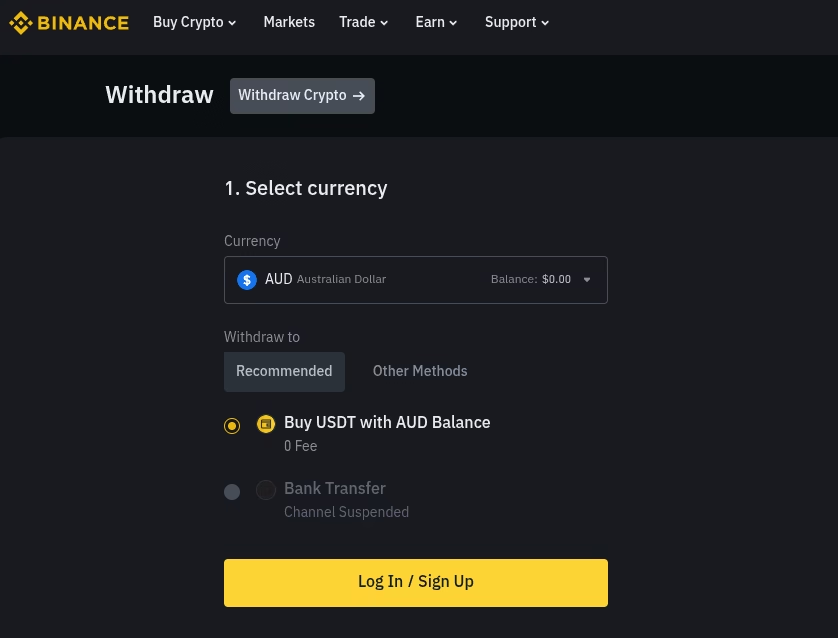Australia’s financial intelligence regulator has ordered Binance’s local unit to appoint an external auditor following concerns about Binance money laundering control and counter-terrorist financing (CTF) systems. The directive, announced Friday by the Australian Transaction Reports and Analysis Centre (AUSTRAC), comes after the regulator identified “serious concerns” with the exchange’s compliance framework.
Matt Poblocki, general manager for Binance Australia and New Zealand, acknowledged the decision, stressing that it should not be seen as punitive.
“Binance Australia acknowledges AUSTRAC’s decision,” Poblocki told Cointelegraph. “This is one of their supervisory review measures and not an enforcement action.”
The request reflects AUSTRAC’s growing focus on the crypto sector, which the regulator has previously identified as highly vulnerable to misuse. Last year, AUSTRAC chief executive Brendan Thomas warned that digital currencies remain at risk of exploitation by criminals.
“This is a global company operating across borders in a high-risk environment. We expect robust customer identification, due diligence and effective transaction monitoring,” Thomas said in a statement.
Governance and oversight concerns
AUSTRAC’s order goes beyond technical compliance. The regulator flagged Binance’s high staff turnover and lack of local senior management oversight as red flags for governance. These concerns raise questions about whether Binance money laundering control systems are being effectively implemented in Australia.
According to AUSTRAC, ensuring strong leadership and resourcing is critical when dealing with an exchange that processes significant transaction volumes across multiple jurisdictions. Weak oversight, the regulator argued, undermines the effectiveness of anti-money laundering and counter-terrorist financing safeguards.
Industry analysts say the move highlights the challenges global crypto firms face in tailoring compliance systems for local markets.
“Binance’s compliance struggles in Australia are part of a broader trend of regulators demanding stronger local accountability from global exchanges,” — Karen Wu, Senior Policy Analyst at Blockchain Intelligence Group.
Binance’s regulatory battles in Australia
This is not the first time Binance has faced scrutiny in Australia. In late 2024, the Australian Securities and Investments Commission (ASIC) launched legal proceedings against Binance Australia Derivatives over alleged consumer protection failures. Months earlier, ASIC conducted searches of Binance’s offices as part of an investigation into its derivatives business.
The probe ultimately led to the cancellation of Binance Australia Derivatives’ license, following concerns about the misclassification of retail clients as “wholesale” customers. The issue triggered widespread account closures and further questions about Binance’s risk management practices.
Together with AUSTRAC’s latest directive, these episodes reinforce a pattern of regulatory friction surrounding Binance money laundering control and broader compliance systems.
Banking access and operational challenges
Binance has also struggled with access to Australia’s banking system. In 2023, the exchange was cut off from local payment services after its provider, Zepto, was directed to suspend support. Binance said it received less than a day’s notice before losing banking access, forcing it to suspend Australian dollar deposits and withdrawals.
Today, users attempting to withdraw AUD are advised to convert funds into USDt stablecoin or use Binance’s peer-to-peer marketplace. The “Bank Transfer” function remains inactive, marked with a “Channel Suspended” message.

For many customers, these restrictions have underscored how regulatory and compliance challenges particularly around Binance money laundering control translate directly into limited service availability.
What this means for investors
For crypto investors, AUSTRAC’s intervention raises new questions about the exchange’s ability to maintain operations in Australia while meeting regulatory expectations. The external audit could reveal gaps in how Binance manages customer identification, due diligence, and suspicious transaction monitoring.
While Binance insists that the review is part of routine supervisory engagement, regulators are signaling that Binance money laundering control must be strengthened if the firm wishes to operate in a market that increasingly prioritizes compliance.
Some industry observers see the move as a turning point.
“The requirement for an independent audit shows regulators are no longer willing to take exchanges at their word on compliance,” — James Hartley, Associate Professor of Finance, University of Sydney.
For now, investors and users alike will be watching closely as Binance works to demonstrate improvements in Binance money laundering control. The outcome could shape not only its standing in Australia but also its broader relationship with regulators worldwide.

Leave a Reply